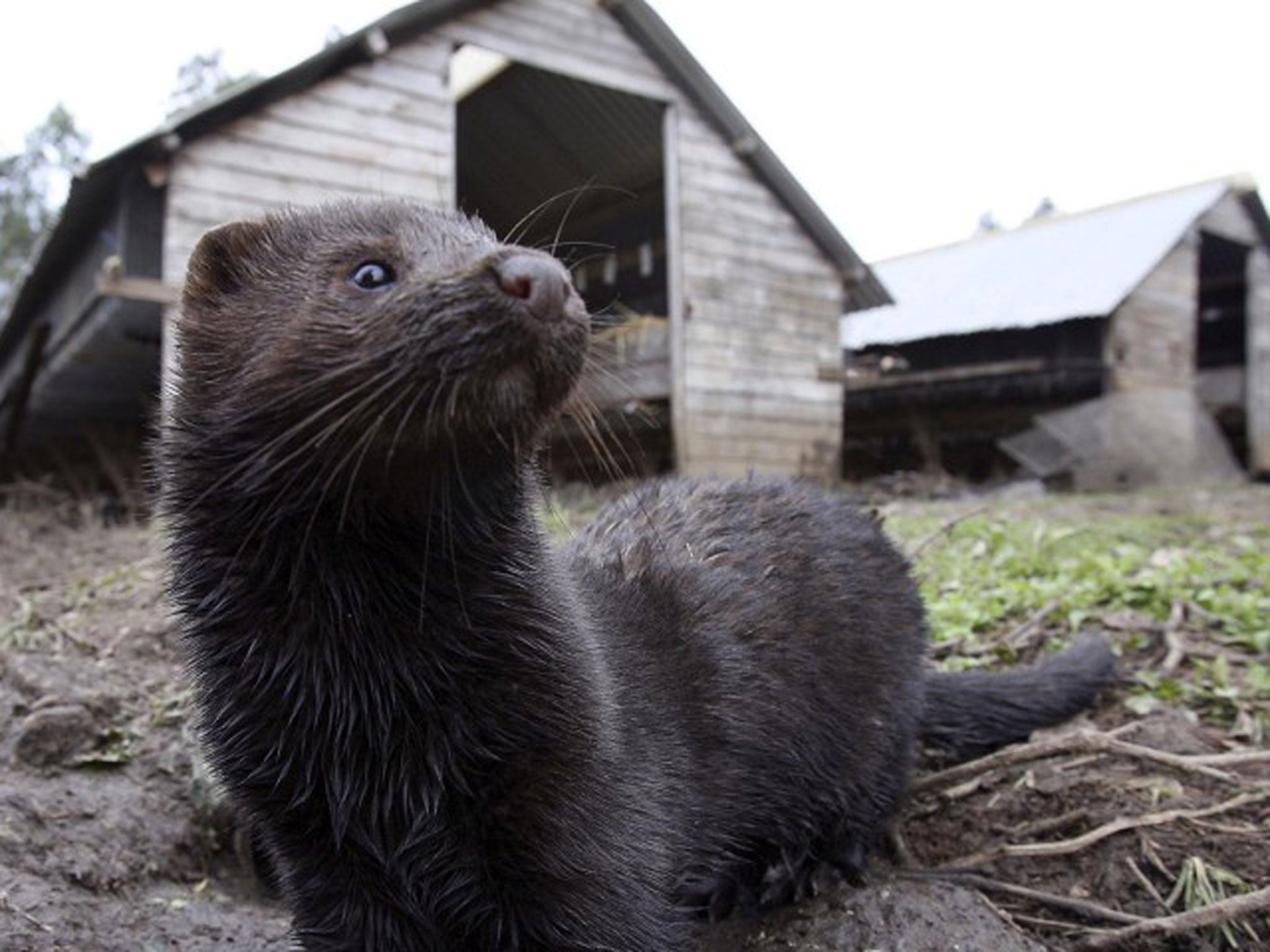At least 12,000 mink dead as coronavirus spreads among fur farms in Utah and Wisconsin
Covid-19 is killing mink in the same way it kills humans, and is wreaking havoc on fur farms in Utah and Wisconsin

Thousands of mink bred in fur farms in Utah and Wisconsin have died from coronavirus, after scientists believe the virus was introduced to the animals by humans.
The outbreak was first noticed in Utah in August. Ten thousand mink have now died in Utah fur farms, a spokesperson from the Utah Department of Agriculture and Food (UDAF) told CBS News on Friday.
This week Wisconsin, the largest fur-producing state, became the second state to confirm a Covid-19 outbreak among their mink population, with one farm affected so far.
Two thousand mink in the one farm - which is now under quarantine - have died, the channel reported.
Wisconsin’s Department of Agriculture, Trade and Consumer Protection (DATCP) said that it had implemented new measures for "carcass disposal, cleaning and disinfecting the animal areas, and protecting human and animal health."
On Wednesday a third state, Michigan, confirmed that mink there had tested positive too.
Scientists believe that humans passed the virus to the animals, and not the other way round.
This week researchers from University College London (UCL) concluded that 26 animals, including farm animals like pigs, horses and sheep, may be vulnerable to infection with coronavirus and could “warrant further investigation and possible monitoring”.
Professor Christine Orengo, from UCL Structural and Molecular Biology and lead author of the study, said: “We wanted to look beyond just the animals that had been studied experimentally, to see which animals might be at risk of infection, and would warrant further investigation and possible monitoring.
“The animals we identified may be at risk of outbreaks that could threaten endangered species or harm the livelihood of farmers.”
She pointed towards cases of coronavirus outbreaks in mink farms that show some animals may act as “reservoirs” of Covid-19, with the potential to re-infect humans.
The scale of the outbreak among mink is unclear, as the fur farms say it is impossible to test every single animal.
The Fur Commission USA, which represents mink farmers, say that there are approximately 275 mink farms in 23 states across the county, producing about three million pelts annually, with a value of more than $300m.
Fur from the dead, infected mink is still being used commercially, and Fur Commission USA told the AP that the fur is processed to eliminate all traces of the virus before it is used for clothing.
As with humans, younger mink are less likely to contract the virus, and most deaths occur among older mink, ages one to four years old.
Difficulty breathing is a common symptom, but the virus progresses extremely quickly, killing most infected mink by the next day.
Researchers have reported that mink are especially susceptible to the virus due to a specific protein in their lungs.
The Netherlands has now moved up its deadline to end mink fur farming by three years to prevent future outbreaks, and killed thousands of animals earlier this year to stop the spread. Spain followed a similar path, and last week Denmark announced a million mink will be killed to stop the outbreak among animals there.
The Humane Society of the United States has called the inaction by the US government "indefensible."
"Fur farms are miserable places for wild animals like mink," Kitty Block, president and CEO of the Humane Society of the US.
"Now, with the coronavirus outbreak killing the animals by the thousands, the suffering has only intensified.
"The only way to end the dual problems of pandemic outbreaks on fur farms and the animal suffering inherent in fur farming is to close down this industry for good."



Join our commenting forum
Join thought-provoking conversations, follow other Independent readers and see their replies
1Comments